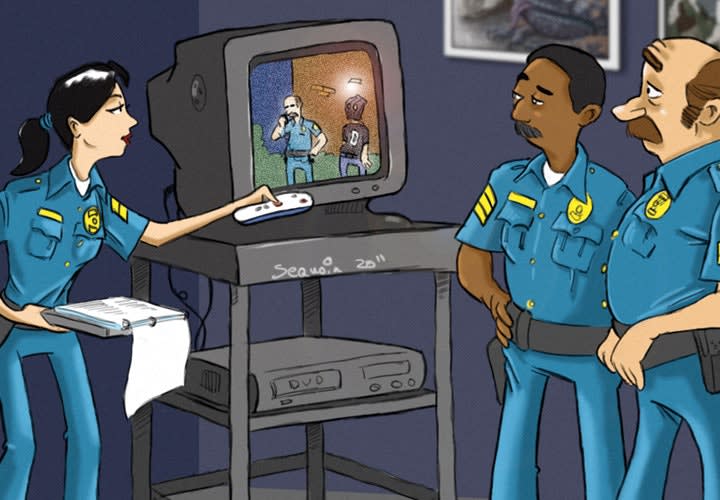Anyone who ever played a sport like high school football has experienced the thrill and agony of hearing comments about your plays when the coach reviews footage from the game with the whole team. In my case, agony was generally the operative word. My entire varsity career as a Flagstaff Eagle we won a total of three games. Needless to say, the beleaguered coaching staff spent a great deal of time giving us feedback about our performance.
Now coaching theory says this is an important exercise in maintaining or creating good performance, and to his eternal credit our head coach John Ply and his staff did everything they could to keep it positive and constructive. But we just weren't very good and we needed to hear both the good and the bad.
Being a great coach trying to make us better not only meant telling us when we made a good play, but what we could do to improve. Did a guard unintentionally signal a pass play by leaning back? Did the quarterback fail to look off the defense on that interception? Did I forget the snap count or did the rest of the line? These are all questions a good coach answers as soon as possible after a game to improve teammates' learning.
Sometimes we would review an officer-involved incident with an in-car camera and I would think how much this was like those post-practice Tuesday evenings when our coaches would review the film with us. They'd use humor to lessen the pain of losing the game and still improve our skills. "Smith, great block, or did you just happen to run into him?" "Smockworst, great use of cover, or did you slip behind that car?"
It would be great if we had coaches like that in all aspects of our life. In law enforcement we are performing skills that our lives depend on, so it would be really great to provide that kind of guidance … and maybe we can.
Field training officers already perform this type of coaching for their rookie charges. But what about the veteran crimefighters? In fact, stats say the average officer killed in both assaults and accidents has at least nine years on. Maybe they are "signaling a pass." Maybe they need to be reminded about some basic skill or technique that makes all the difference in a crisis but never gets practiced after the academy until your life depends on it.
This is where a good coach can make all the difference. I submit we start thinking about sergeants not just as supervisors in charge of paperwork and on-scene decisions, but also as coaches in charge of officer safety and performance. Time and again, I see video of officers who have developed bad habits an FTO would have hammered them for.
This isn't to say officers intentionally develop bad habits; they don't anymore than a halfback intentionally develops the habit of signaling the way a play will go by leaning in that direction. A repetition is a repetition whether it is performed on a field or on the street, and learning and unlearning can be controlled via feedback.
Feedback can come from the officer watching himself on a dashcam or a sergeant telling him he turns his back on a violator every time he keys his mic. This is a lot better than spitting teeth out in the back of an ambulance or worse. While we all hate to be criticized we need to know when we are developing bad habits.
I propose we think about instituting an FTO Day for everyone once a year regardless of rank or assignment. Getting critiqued after a traffic stop or field interview is not only a way to refresh your safety skill set, it's also a way to reinforce the core mission of our profession.
Another idea is running a squad critique by watching video of themselves like it's a football game review, the sergeant acting as coach. The key is everyone being open to learning and receiving feedback and a sergeant willing to take time to make sure her officers aren't forgetting the snap count.
Dave Smith is the creator of "Buck Savage" and a retired law enforcement officer from Arizona. Currently, he is the lead instructor for Calibre Press' Street Survival seminar.













